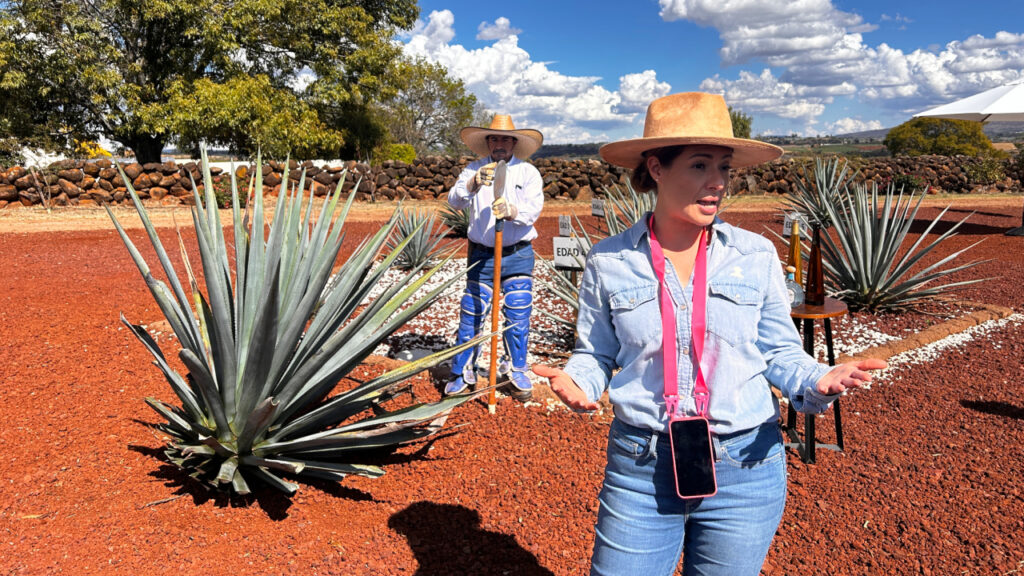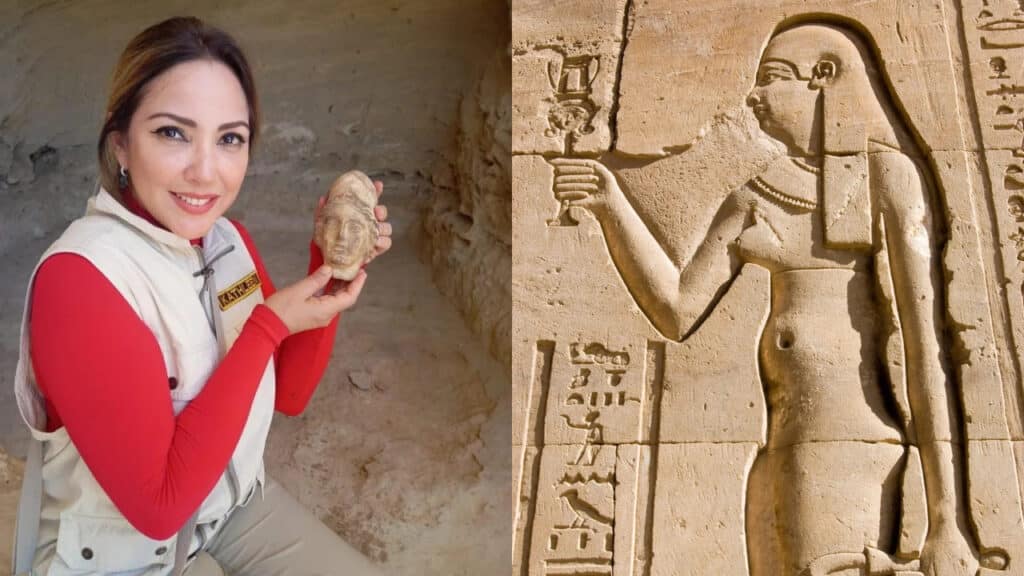
These JEFAS Boldly Changed Career Courses and Proved Paths Are Not Linear
Sometimes, life forces us to choose our professional career very early. Family, economic, and personal pressures often become a heavy burden, and we enter the rat race as soon as possible.
The worst thing is that we feel it is a blood pact, and we must continue on this path for the rest of our lives, or we will be considered a failure. But in reality, nothing could be further from the truth. Often, those first experiences teach us enough to stop dead in our tracks and change routes.
FIERCE spoke with six Latinas who decided to change careers and prove that professional life is not a linear path. Here’s what they taught us.
The pressure is REAL
Many women of color are the daughters of immigrants, of parents who sacrificed a lot to see their children grow up in a safe country full of opportunities. That was Carolina Caro’s experience. Her parents emigrated from Venezuela to Canada without even a college degree, so, for them, their leap to a new country meant making sure Carolina and her brother had the opportunity to receive a solid education.
“They always said that was the way to break the cycle of poverty,” Carolina, who runs Conscious Leadership Partners today, told FIERCE. “They always encouraged us to follow one of three paths: be a doctor, a lawyer, or an engineer. So, I started my career as a scientist and a molecular biologist studying advances in HIV/AIDS research. I was supposed to be a physician.”
Monique Herrera’s experience was similar.
After tirelessly working in retail to finance her education at the Fashion Institute, she found it difficult to get a job. She continued to work in the industry, carving her way up the ranks. Eventually, she moved to the corporate side of the same retail operation.
However, the move to corporate was difficult, confusing, and lonely. “I wasn’t well prepared to navigate the corporate culture,” Monique says. “I hadn’t been exposed to it through my parents or family, I didn’t have a strong network, and I hadn’t found a good mentor. However, I was determined to succeed.”
“My family had sacrificed a lot for me to have opportunities unknown to them, and failure was not an option,” Monique added. “I rose to any opportunity that came my way and eventually began running the business operations of the brand’s intimate apparel department, where I was responsible for buying garments for more than 250 stores across the country.”

The industry doesn’t make things easy either
For Gabi Day, CEO and founder of Bright Body, the pressure came from the industry. After training in human development and healthcare administration, she realized early on that the industry culture was not supportive of a strong, college-educated Latina.
“I often had to feign incompetence to keep my bosses from feeling threatened,” she explains. “Over time, the stress of playing small and my disillusionment with the industry caused my chronic illnesses (hypermobile Ehlers-Danlos syndrome, positional orthostatic tachycardia syndrome, and Lyme disease) to flare up. I took FMLA leave and never returned to the company.”
For her part, Vergi Rodriguez understood that a career as a dancer was a race against the clock. After working with talents like Britney Spears and Prince, she became a filmmaker and producer. “Eventually, I had to pivot because a professional dancer’s career doesn’t last long,” she says. “Just because the goals change, just as the industry at the time changed drastically.”
On the other hand, the decision might come from a different place. While Monique Herrera felt creatively fulfilled in her work in retail management, the environment was not healthy for her. “Stepping away felt like I was turning my back on my dream of dominating the fashion industry, and it was devastating,” she explained. “Thankfully, I was in a position financially to walk away and regroup myself.”
Monique then joined the Society of Hispanic Professional Engineers (SHPE) as a development and membership coordinator. Ten years later, she now serves as the nonprofit’s chief external relations officer. She leads SHPE’s corporate relations, sponsor partnerships, marketing, public relations, and other communications efforts to advance Hispanic representation in STEM.

That’s when you have to listen to your intuition
Shifting from a career as a molecular biologist to creating a firm that supports organizations in improving their workplace, as Carolina Caro did, undoubtedly comes from listening to the heart.
“The only way I can describe what happened during my big career turn is that I tuned into my intuition and, more importantly, started listening to it,” she told us. “It seemed to happen by accident, although the more appropriate word is probably serendipity.”
Carolina worked as a portfolio manager for one of the world’s leading pharmaceutical companies when the organization unveiled work-life balance as a new value. “I have to admit I was a little hesitant to take this new direction,” she explains. “Partly because it seemed hypocritical, as I had been celebrated and promoted for being a workaholic. But on a deeper level, my work ethic was influenced by my parents, who had always told me that I would have to work twice as hard as everyone else to be successful.”
“Around that time, my supervisor had encouraged me to take up a hobby that would help me create more balance and get out of the office at a reasonable hour. They wanted me to model this value for my team and establish a healthier work culture than what I was known for,” she adds. “Reluctantly, I decided to take some acting classes as a way to close that conversation. I thought it might help me in my presentations at work. Little did I know that interpreting classes would change my life. They introduced me to mindfulness and the idea of being more present in the moment, which opened Pandora’s box.”

For other Latinas, the change in their professional lives results from realizing a need in the marketplace
Michelle Enjoli went from working as a television producer to the corporate world, working in event management. She then realized how important it was for professionals to take control of their professional development and growth to navigate unexpected career changes.
“In 2019, I launched my business as a professional development coach and speaker to help others learn how to network effectively, build a personal brand, and market themselves consistently,” she shared. “I saw an urgent need for professionals to learn how to develop and market themselves when my former colleagues faced an unexpected job loss. After a few years of helping others navigate their transitions, I decided to pivot and pursue it as a business to help others.”
For her part, Gaby Day began looking for ways to support her health and immune system holistically. “I already knew about nutrition, exercise, and medical treatment. [Then] I started looking at environmental toxins,” she explains.
“I started looking at the ingredients in my personal care products because they seemed like the easiest thing to control. I realized I could do better and searched high and low for a clean brand with eco-friendly packaging. After months of not finding products that met my requirements, I decided to create my own brand.”

Others just learn to navigate life the best they can
When Kimberly Bacso married her husband, she traded an office with a view for a life of adventure. Her husband ended up serving in the U.S. Army for 23 years. She was a senior accountant at a Fortune 100 company before saying, “I do.” Once they were stationed in Germany, she decided to take a more flexible job, not in her field. However, what was supposed to be a temporary pivot was a permanent one.
During those 23 years, Kimberli worked full-time and part-time, founded a nonprofit, taught yoga and fitness classes, and volunteered. “I was able to gain experience in accounting, operations, marketing, program development, project management, nonprofits, and more,” she told us. “With such broad experience and a non-linear career path, it’s difficult to search for opportunities. I have breadth of experience but not depth. I can’t say I have 20 years of experience in one field. But the breadth of experience lends itself well to being a chief of staff.”
Kimberly is now chief of staff to the CEO of TOGETHER!, a platform that empowers young, independent-minded Americans to raise funds for their causes, companies, and campaigns.

But what does it take to change career paths?
When deciding to take the leap of faith, these Latinas agree that one thing is fundamental: having faith in yourself. “It is essential to have faith in yourself,” says Vergi Rodriguez. For her, self-confidence comes from recognizing one’s unique perspectives and strengths.
“During the transition from my career as a professional choreographer and dancer to branding and marketing, some of the challenges I faced were acquiring new technical knowledge, understanding industry-specific terminology, and building credibility in a new field,” she explained.
“Overcoming these obstacles required dedication to continuous learning, such as taking marketing courses, attending workshops, and obtaining relevant certifications. And so I did.”
For Kimberly Basco, networking is fundamental. “When you’re ready to take the leap, let people know,” she recommends. “People are happy to help and word of mouth could land you your next position.”
“The most important thing I’ve learned is that it’s absolutely necessary for women to support women through networking, recommending, encouraging, mentoring, inviting, collaborating, and hiring,” she added. “If I’ve made it somewhere, it’s my job to reach back and bring others along.”

Vergi found that emotional resilience is also key. “Adapting to a different pace and culture requires patience and persistence.”
For Carolina Caro, the experience was similar. The new skills she was learning gave her the tools to be self-aware and reflective in a new way. It led her to ask big existential questions such as: “What am I really here for? What is the purpose of my life? The answers prompted her “Big Resignation” moment nearly twenty years ago when she left the career she had relentlessly pursued for several years of graduate school and climbing the corporate ladder.
“You can imagine how my parents reacted when I told them I was quitting my job to move to New York and train as an actress at the Neighborhood Playhouse drama school,” she explains. “The acting was short-lived, but my time on stage was not because that training was the foundation for the professional public speaking, training, and coaching I do today. I’m fortunate to wake up every morning and do work that is in line with who I am. And as a bonus, I’ve grown my company beyond what my parents could have imagined for me.”

Ultimately, it’s all about making the most of the identity crisis and coming out stronger
As is often the case with many, these women followed the path they were told would lead to success. But when they began to question their choices, the result was a profound journey of self-discovery that can be uncomfortable.
“It can be easier to accept what you know, even if it’s unhealthy than to create something new,” admits Carolina Caro. But once you get past the external pressures and learn to adjust, the blessings rain down.
“My career change has impacted my personal and professional life in a positive way, thanks to a renewed sense of purpose and great relationships,” says Michelle Enjoli.” This experience has taught me that you can do anything you set your mind to. Will it be easy? No. But it is possible with hard work, passion, and determination.”
“There is such a huge difference between having a job and dedicating yourself to work that is deeply aligned with who you are,” agreed Carolina. “I get up every day and do this work, which is transformative not only for me but also for those we are privileged to serve. I feel deep gratitude to the universe for continually guiding me on the path I was meant to follow.”
“Embracing change has enhanced my versatility, problem-solving skills, and creativity,” Vergi concludes. “Overall, a career change is a transformative experience that builds confidence and enriches the personal and professional dimensions of your life, as well as having a well-rounded community.”




